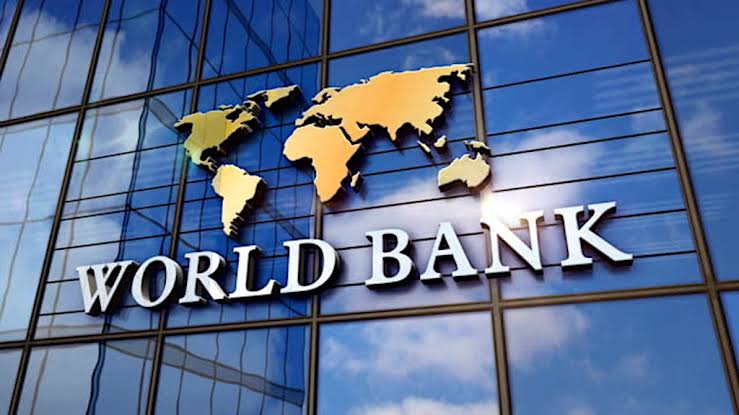The World Bank has categorized Nigeria in two negative zones. The first is among countries with double digit inflation and a weakened economy. The second is among countries with the worst performing currencies. In all two, Nigeria featured prominently.
In a latest report, the Bank says that Nigeria, Angola and Sierra Leone, with double-digit inflation and weakened domestic currencies, will maintain a high interest rate for a long period and may even increase it.
The bank said that in its latest Africa’s Pulse report, where it focused on how the inflation outlook varied across countries on the continent.
On Tuesday, the National Bureau of Statistics announced that the country’s inflation for September had accelerated to 32.70 after two consecutive months of decline, on the back of high fuel prices, which eroded the impact of the harvest season on food prices.
At the last Monetary Policy Committee of the Central Bank of Nigeria, the benchmark interest rate was hiked by 50 basis points to 27.25 per cent in a bid to rein in inflation.
In the Africa Pulse, the World Bank said that, unlike some other African countries that are already cutting the benchmark rate or holding it, the Central Banks of Nigeria, Angola and Sierra Leone would be considering the higher-for-longer approach.
“Central banks in countries that still have double-digit inflation and weakened domestic currencies (such as Angola, Nigeria, and Sierra Leone) will keep monetary policy rates higher for longer and, in fewer cases, they may increase their policy rates—particularly in countries where inflation rates still have not peaked.
“Broadly, currency weakness, slow fiscal adjustment, and cost pressures are among the factors driving these countries to keep a tighter stance for a longer period. For instance, Ethiopia, Ghana, and Nigeria are among the worst performing in Africa this year, and their currencies continue weakening while demand for foreign exchange remains pressing,” the World Bank report said.
It also indicated that measures to mitigate social unrest associated with the high cost of living in Angola (doubling of the minimum wage) and Nigeria (partially reinstating fuel subsidies) are putting pressure on public finances.
Already, the Bretton Woods organisation has disclosed that the naira was among the worst-performing currencies in Sub-Saharan Africa in 2024.
As of the end of August, the naira had depreciated by approximately 43 per cent year-to-date, making it one of the region’s weakest currencies alongside the Ethiopian birr and South Sudanese pound.
The depreciation of the naira was attributed to several factors, including surging demand for United States dollars in the parallel market, limited dollar inflows, and delays in foreign exchange disbursements by Nigeria’s central bank.
The World Bank further highlighted that demand for dollars, driven by financial institutions, non-financial end-users, and money managers, had exacerbated the pressure on the naira.
It noted, “By August 2024, the Ethiopian birr, Nigerian naira, and South Sudanese pound were among the worst performers in the region. The Nigerian naira continued losing value, with a year-to-date depreciation of about 43 per cent as of August.
“Surges in demand for US dollars in the parallel market, driven by financial institutions, money managers, and non-financial end-users, combined with limited dollar inflows and slow foreign exchange disbursements to currency exchange bureaus by the central bank, explain the weakening of the naira.”








More Stories
Teenager in viral photo of Obi’s 2023 presidential campaign rally, Alabi Quadri languishes in jail
Ribadu tells families of kidnapped victims not to pay any ransom
Ozigbo rejects Anambra APC guber primary, calls it a theft